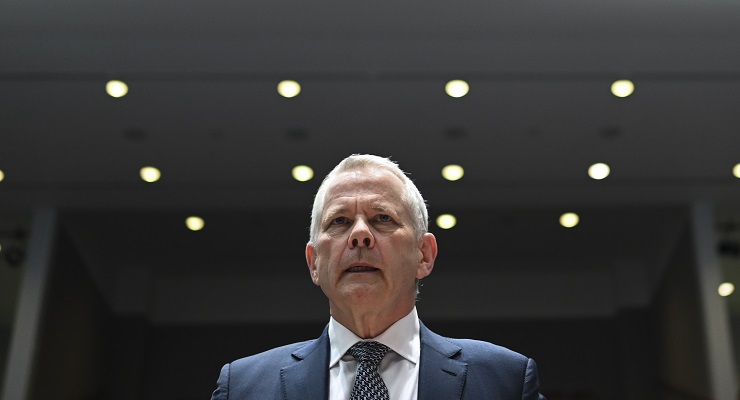
It wasn’t just Attorney-General Christian Porter who waited until the last Friday before Christmas to take out the trash. The big four banks are pretty good at it too.
The corporate community knows that AGMs held on a Friday tend to get less coverage and scrutiny, so it was no surprise that NAB chose the end of last week. The bank knew it was going to cop a grilling on climate policies, while a large minority of its shareholders once again rejected the board’s recommendation and voted 26.8% in favour of a shareholder resolution calling for more transparent reporting on its move out of lending to coal, oil and gas companies.
Then you have the question of responsible lending and the gambling debate.
In April this year, the UK banned the use of credit cards for gambling. Some lenders in Australia, such as Macquarie, Suncorp and Citi, have already voluntarily introduced such a policy.
I lobbed a question about this at NAB chairman Phil Chronican during Friday’s AGM, including why credit card transactions with online gambling companies were treated as a cash advance, thereby instantly chalking up excessive interest charges of close to 20%.
It was almost at exactly the moment this question was being answered that the Australian Banking Association (ABA) belatedly dropped this consultation report looking at whether their members should ban credit card transactions for gambling.
The 28-page report makes for very interesting reading and shows overwhelming support from the community for such a move.
Given that you can’t use credit cards on the pokies, at racetracks or at casinos, and that online bookies such as Sportsbet, Bet365 and Ladbrokes are banned from providing credit themselves, it does seem strange that our big four banks are still gouging vulnerable customers by offering the punitive cash advance service for millions of Australian credit card customers.
The gambling companies themselves prefer credit cards — that was certainly the most prominent payment method offered when I set up accounts with the likes of Sportsbet, Bet365, Ladbrokes, PointsBet and BetEasy to test out how dodgy their products and services were.
Having now received this compelling report from its own industry association, surely the big four are now going to act. The ABA says it can’t make any recommendation to impose a ban because of collusion legalities, but individual members now have all the information they need to move on this issue.
Given the banks have been so slow to act, perhaps Treasurer Josh Frydenberg should just step in and impose the ban.
The only mainstream media coverage of the ABA report was this piece in The Australian, which noted that “Australians overwhelmingly support restricting or banning the use of credit cards for gambling”.
Yep, it was pretty remarkable that a YouGov survey of 1500 people for the ABA found 54% support an outright ban and just 7% of respondents believe there should be no restrictions on gambling with a credit card.
Overall, 30 of the 40 submissions received by the ABA were in favour of an outright ban. Yet none of this was discussed at the December AGMs put on by ANZ, Westpac and NAB, since the report was dropped on the last Friday before Christmas.
Unsurprisingly, industry bodies such as Responsible Wagering Australia (RWA) argued against any restrictions on credit card gambling. The Australian also failed to disclose that News Corp’s sister company Fox Corp is one of the five biggest shareholders in Flutter Entertainment, the parent company of Sportsbet which is the largest member of RWA.
Australians are the world’s biggest gamblers in per capita terms and online gambling has soared during the pandemic. The big four banks are well aware that hundreds of millions of the $25 billion in annual Australian gambling losses comes from their credit card customers, many of whom can’t afford it. Talk about moral bankruptcy at the upper echelons of corporate Australia.
Going into 2021, you would think the concept of a social licence to operate would have more currency among the tin-eared bankers of Australia.








Thanks Stephen. Hadn’t read about that anywhere, surprising hey!!!
Josh is ready and able to release them from any moral or ethical undertakings fro the Hayne Royal Commish too.
It’s great being a banker, no doubt. Money for jam.